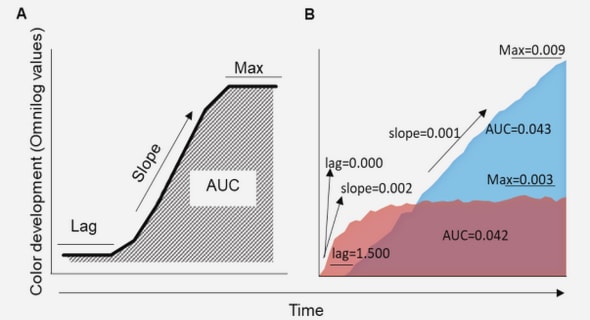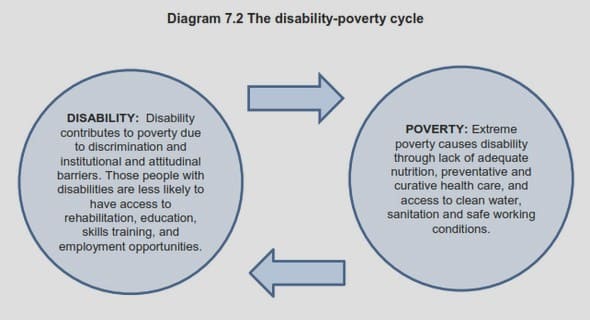Get Complete Project Material File(s) Now! »
Conceptual Model & Hypothesis Development
A conceptual model based on the source credibility model and existing literature on source-similarity and tie-strength has been developed in order to analyse the effects of the independent variables on the dependent variable with self-esteem as a moderator (See Figure 2). Source credibility is only added to the conceptual model to show the origin of the independent variables. Hence, source credibility as a whole concept will not be tested against the purchase intention.
Hypotheses have been developed based on the different variables of the conceptual model in order to analyse the effects and relations between the independent variables, the moderator, and dependent variable.
Source Attractiveness
Research has found that consumers are more likely to accept and rely on information that is delivered from an attractive source (Wang & Scheinbaum, 2018). In addition, attractive endorsers are more likely to exert a positive attitude on a consumer purchase intention (Till & Busler, 2000; Wang et al., 2017). Since studies suggests that a source’s perceived attractiveness has a positive influence on a consumer’s purchase decision, this thesis proposes the following hypothesis:
H1: Source Attractiveness has a positive influence on the purchase intention
Source Trustworthiness
Current research has found that trustworthy information is more likely to be adopted and received by the consumer, while statements and messages from an untrustworthy source lack the ability to impact a consumer’s purchase intention (Wathen & Burkell, 2002; Reimer & Benkenstein, 2016). Thus, this thesis proposes the following hypothesis:
H2: Source trustworthiness has a positive influence on the purchase intention
Source Expertise
A study conducted by Kiecker & Cowles (2002) suggests that when an endorser or a celebrity has a higher perceived expertise than the consumer, the messages are perceived as more credible, persuasive, and qualified. Hence, the following hypothesis is proposed for this thesis:
H3: Source Expertise has a positive influence on the purchase intention
Source Similarity
The perceived similarity between an individual and the endorser increases the persuasion of the endorsement (Thompson & Malaviya, 2013). Jiang, Lan, Joandrea, Darren, and Amitava (2010) suggest that similarities between two individuals results in a higher purchase intention of a product or service. Furthermore, a study conducted by Fu et al., (2018) proposes that similarity has a positive effect on a follower’s purchase intention. Thus, the following hypothesis is proposed:
H4: Source similarity has a positive influence on the purchase intention
Source Tie-Strength
Research suggests that consumers rely on both stronger and weaker ties as references to their decision making (Duhan et al.,1997; Kim & Choi, 2018). Consumers referred to their stronger ties when faced with an important purchase decision. Naturally, stronger ties between an endorser and a consumer increases the likeliness that they will share similar perspectives of a product due to the persuasion power of the endorser (Kim & Choi, 2018) Hence, the following hypothesis is proposed:
H5: Source Tie- strength has a positive influence on the purchasing intention Moderating role of Self- esteem
In this thesis, self-esteem has been given the moderating role between the independent variables; attractiveness, expertise, trustworthiness, similarity, and tie-strength and the dependent variable; purchase intention. Using self-esteem as a moderating variable has been done by several prior studies in different topics such as consumer behaviour e.g. Wang and Wang (2016), and Brunet, Pila, Solomon-Krakus, Sabiston, and O’Loughlin (2019).
Self-esteem moderating attractiveness
Prior research has shown that self-esteem is a basic need, and therefore is an important factor in the fundamentals of marketing a product (Durgee, 1986; Hogg, Cox, & Keeling, 2000; Sheldon, Elliot, Kim & Kasser, 2001; Ferraro, Shiv, & Bettman, 2005). It is suggested that an individual’s self-esteem affects purchase intention, especially in relation to celebrity endorsement (Escalas & Bettman, 2015). This is motivated by the proposition that lower self-esteem consumers seek to gain higher self-esteem and are therefore more likely to purchase a product that match their ideal self-image (Sirgy, 1985, Escalas & Bettman, 2017). Prior research suggests that buying certain products can improve one’s self-esteem by boosting one’s ego (Arndt, Solomon, Kasser & Sheldon, 2004). Thus, the following hypothesis is suggested:
H6: Self-esteem moderates the relationship between attractiveness and the purchase intention.
Self-esteem moderating trustworthiness
Individuals who possess higher self-esteem are more confident in how to achieve goals and take on the role of a leader. However, it is found that people with lower self-esteem are more likely to follow and place their trust in other more self-assured individuals (Schoel, Bluemke, Mueller & Stahlberg, 2011). Prior research states that consumer perception of the trustworthiness of an online source is directly associated with a consumer’s purchase intention (Harris & Goode 2010). Therefore, the following hypothesis is suggested:
H7: Self-esteem moderates the relationship between trustworthiness and the purchase intention
Self-esteem moderating expertise
As previously stated, it is found that there is an interaction between an endorser’s expertise and the endorser’s successfulness of promoting a product (Till & Busler, 2000). Thus, an influencer who has specialized knowledge within a field will have a greater chance to successfully promote a product within that specific field. The use of a relevant influencer will therefore have a positive effect on the customer’s attitude towards the brand, and therefore lead to an increased purchase intention (Burrow & Rainone, 2017). However, if an influencer promotes a product that is not in line with their own field of expertise, a customer’s perception of the influencer may affect the purchase intention negatively (Burrow & Rainone, 2017). When a consumer is in the process of comparison with the endorser, the consumer includes the perceived expertise and knowledge of the endorser as a factor to satisfy their own self-esteem (Bower, 2001). Hence, the following hypothesis is suggested:
H8: Self-esteem moderates the relationship between expertise and the purchase intention
Self-esteem moderating similarity
The similarity between a salesman and a consumer can enhance the possibility to a purchase, since customers get more influenced by people who share similar attitude as themselves (Jiang, Hoegg, Dahl & Chattopadhyay, 2010). Research shows that an individual with higher self-esteem tends to find more similarities between oneself and others. Thus, generating a positive attitude towards the other party, which increases the possibility of a purchase (Brendl, Chattopadhyay, Pelham & Carvallo, 2005; Phua et al., 2017) Therefore, the following hypothesis is suggested:
H9: Self-esteem moderates the relationship between similarity and the purchase intention
1.0 Introduction
1.1 Key Words
1.2 Problem
1.3 Research Purpose
1.4 Research Questions
1.5 Delimitations
2.0 Literature Review
2.1 Methodology of Literature Review
2.2 Internet Fame
2.3 Source Credibility
2.4 The Source Credibility Model
2.5 Similarity .
2.6 Tie-strength
2.7 Self-Esteem
2.8 Purchase Intention
3.0 Conceptual Model & Hypothesis Development
3.1 Source Attractiveness
3.2 Source Trustworthiness
3.3 Source Expertise
3.4 Source Similarity
3.5 Source Tie-Strength
3.6 Moderating role of Self- esteem
3.7 Self-esteem moderating attractiveness
3.8 Self-esteem moderating trustworthiness
3.9 Self-esteem moderating expertise
3.10 Self-esteem moderating similarity
3.11 Self-esteem moderating Tie-strength
4. Methodology and Method
4.1 Research Approach & Philosophy
4.2 Research strategy
4.3 Data collection method
4.4 Questionnaire development
4.5 Pre-test
4.6 Data Sets
4.7 Statistical Techniques
4.8 Ethical Considerations
4.9 Validity
4.10 Reliability
5.0 Results
5.1 Demographic Results
5.2 Correlation Analysis Results
5.3 Linear Regression Analysis Results
5.4 Moderated Linear Regression Analysis Results
5.5 Content Analysis Results
6. Analysis/ Interpretation
6.1 Linear Regression Analysis
6.2 Moderated Regression Interpretation
6.3 Content analysis
7.0 Conclusion
8.0 Discussion
8.1 Strengths
8.2 Limitations
8.3 Managerial Implications
8.4 Further research
GET THE COMPLETE PROJECT
Influencer marketing: What if everything revolves around the consumer’s self-esteem


